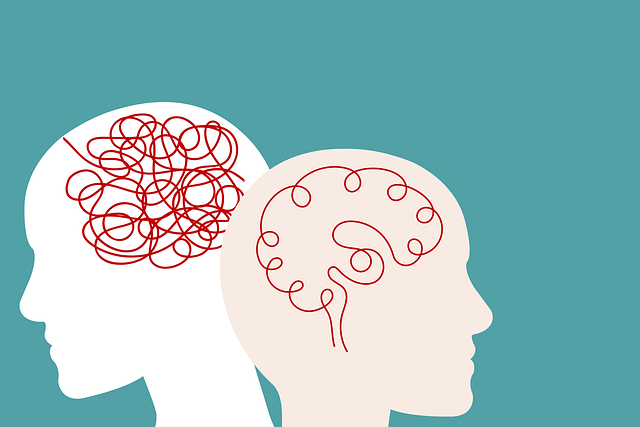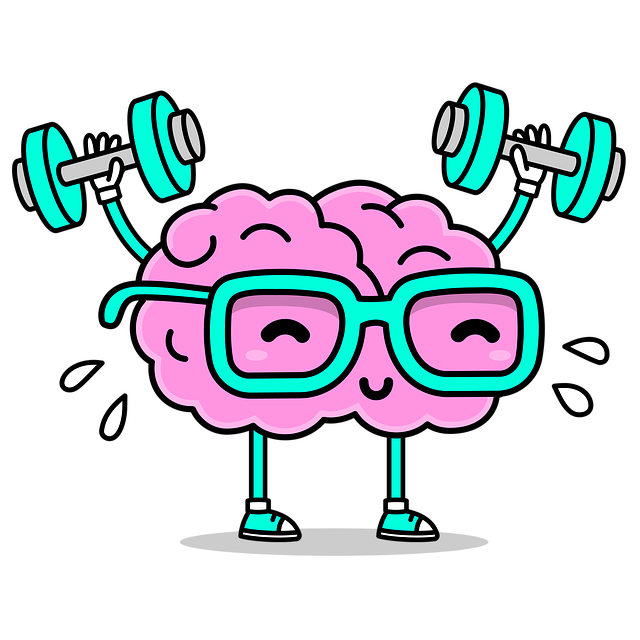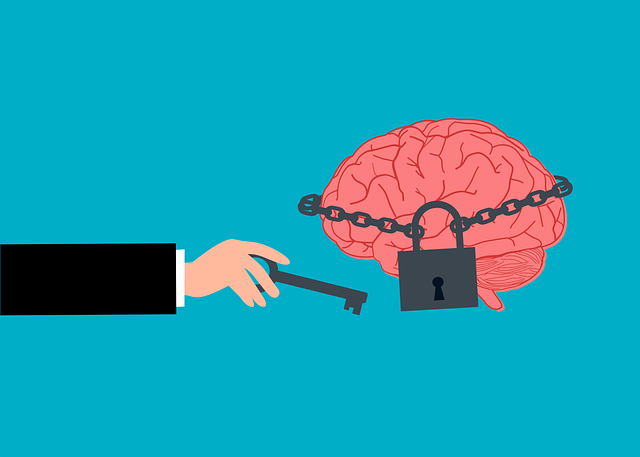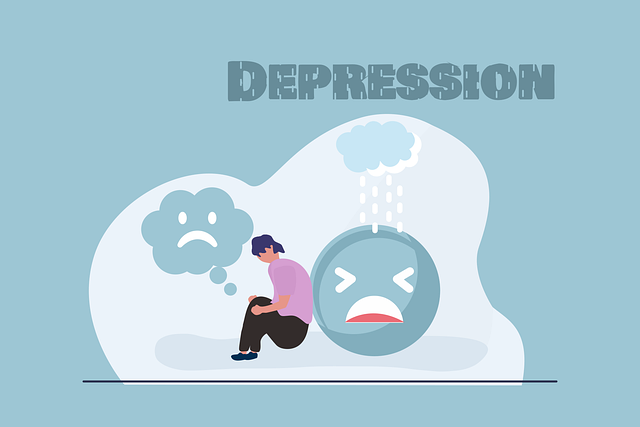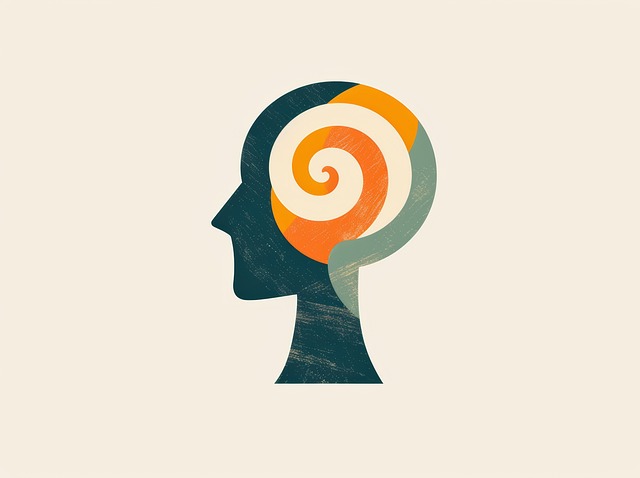Burnout among healthcare professionals, particularly at institutions like Aurora Bilingual Therapy, is a pressing issue negatively impacting well-being and patient care. It's characterized by emotional exhaustion, depersonalization, and reduced personal accomplishment. Key drivers include workload intensity, lack of control, insufficient social support, and limited access to mental health programs. Preventative measures, such as training, supportive work environments, self-care practices, and mental health education, are vital for maintaining healthcare providers' passion, compassion, and clinical excellence. Aurora Bilingual Therapy offers tailored communication support, promoting inclusive environments where professionals can discuss challenges openly, enhancing stress management and work-life balance through trauma support and coping skill development. Technological advancements, including telemedicine and mindfulness apps, further contribute to burnout prevention in today's digital healthcare landscape.
Healthcare provider burnout is a growing concern, impacting patient care and organizational success. This comprehensive guide explores effective strategies to combat burnout among healthcare professionals, focusing on holistic well-being. We delve into the root causes, including work-life balance challenges, and present evidence-based solutions. From enhancing communication to integrating technology, this article equips providers with tools to thrive. Discover how Aurora Bilingual Therapy’s approach can foster resilience, ensuring a sustainable future for healthcare delivery.
- Understanding Burnout Among Healthcare Providers
- The Impact of Work-Life Balance on Prevention
- Effective Communication and Support Strategies
- Integrating Self-Care Practices for Longevity
- Role of Technology and Innovation in Burnout Mitigation
Understanding Burnout Among Healthcare Providers

Burnout among healthcare providers is a growing concern, impacting both individual well-being and patient care quality. It often manifests as emotional exhaustion, depersonalization, and reduced personal accomplishment—a state that can lead to significant job dissatisfaction if left unaddressed. Healthcare professionals, especially those in demanding fields like Aurora Bilingual Therapy, are at heightened risk due to constant exposure to distressing situations, long working hours, and high-pressure environments.
Understanding burnout requires recognizing its underlying causes, which are multifaceted. Workload intensity, lack of control over work processes, poor social support, and inadequate access to Mental Health Education Programs Design can all contribute. Furthermore, the emotional healing processes required to manage challenging cases can be exhausting without proper strategies in place. Boosting confidence through effective training and fostering a supportive work environment are key components in preventing burnout, ensuring healthcare providers can maintain their passion, compassion, and clinical excellence over time.
The Impact of Work-Life Balance on Prevention

Maintaining a healthy work-life balance is a cornerstone in burnout prevention strategies for healthcare providers. In today’s demanding medical landscape, where professionals like those at Aurora Bilingual Therapy often juggle heavy caseloads and complex patient needs, prioritizing self-care becomes paramount. By setting clear boundaries between professional and personal time, healthcare providers can mitigate the risk of emotional exhaustion, a primary factor in burnout. This balance allows for much-needed respite, enabling practitioners to recharge and approach their work with renewed vigor and focus.
Promoting a robust work-life integration also fosters a sense of resilience against stress. Mind Over Matter principles, when embraced, empower healthcare providers to cultivate positive mental attitudes, which are essential in navigating the challenges they face daily. This resilience, coupled with cultural competency training that enhances understanding and empathy towards diverse patient populations, creates a more fulfilling and sustainable professional journey. Such strategies collectively contribute to a healthier, happier workforce at institutions like Aurora Bilingual Therapy, ultimately enhancing patient care and outcomes.
Effective Communication and Support Strategies

In the high-pressure environment of healthcare, effective communication and support strategies are vital for burnout prevention. Aurora Bilingual Therapy plays a crucial role in fostering a supportive ecosystem by offering specialized services tailored to address the unique challenges faced by medical professionals. Through advanced therapeutic techniques, they facilitate open dialogue, ensuring that healthcare workers feel heard and understood. This, in turn, enhances their ability to manage stress and maintain work-life balance, key aspects of coping skills development.
The integration of trauma support services within these strategies is particularly beneficial. By providing safe spaces for emotional expression, Aurora Bilingual Therapy aids in processing and releasing traumatic experiences—a common trigger for burnout among healthcare providers. Equipping medical professionals with robust communication tools and emotional support not only prevents burnout but also improves patient care by enhancing the overall quality of interaction and decision-making processes within healthcare institutions.
Integrating Self-Care Practices for Longevity

In the healthcare sector, where demands are high and pressure constant, burnout among providers is a significant concern. A key strategy to combat this issue lies in integrating self-care practices that prioritize longevity. Aurora Bilingual Therapy recognizes the importance of mental health awareness and emotional intelligence as foundational elements for preventing professional exhaustion. By fostering an environment where healthcare workers feel supported and encouraged to engage in regular self-care, institutions can enhance overall job satisfaction and resilience.
Effective self-care strategies are not one-size-fits-all; they must be tailored to individual needs. This could involve incorporating activities like meditation, exercise, or creative outlets to manage stress. Mental Health Education Programs Design that focus on emotional intelligence development equip healthcare providers with the tools to navigate complex interpersonal dynamics and maintain a healthy work-life balance. Such initiatives contribute to a holistic approach to burnout prevention, ensuring that mental health is just as prioritized as patient care.
Role of Technology and Innovation in Burnout Mitigation

In today’s digital era, technology and innovation play a pivotal role in mitigating healthcare provider burnout. Tools like telemedicine and electronic health records (EHRs) have revolutionized patient care, reducing administrative burdens and enabling more efficient interactions. For instance, Aurora Bilingual Therapy platforms can facilitate seamless communication between providers and diverse patient populations, fostering inclusive care environments. These advancements not only streamline workflows but also enhance job satisfaction by allowing healthcare professionals to focus on patient needs rather than logistical tasks.
Moreover, technological solutions can provide support for emotional regulation and social skills training. Mobile apps designed for mindfulness and stress management offer valuable resources for providers to maintain healthy work-life balance. Additionally, digital platforms dedicated to Healthcare Provider Cultural Competency Training can help address the emotional toll of dealing with diverse patient backgrounds, ensuring practitioners remain empathetic and engaged. Such innovations collectively contribute to a more sustainable and resilient healthcare workforce.
Healthcare provider burnout is a pressing issue, but by implementing targeted strategies, such as prioritizing work-life balance, fostering open communication, integrating self-care practices, and leveraging technology innovatively—as exemplified by solutions offered by Aurora Bilingual Therapy—we can create a more sustainable and supportive work environment. These approaches not only mitigate burnout but also enhance the quality of patient care. By adopting these strategies, healthcare organizations can foster a culture that values and supports their providers’ long-term well-being.
